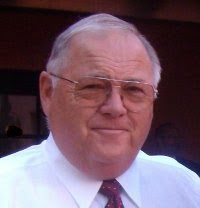I wrote this (unedited) and was three chapters from the end, describing a light seaplane carrying an underwater explosive device to be dropped at the Bangor Nuclear submarine base in Washington. I was in the UK at the time and got up one morning and switched on the TV news. 911 happened and I never wrote another word. After all this time I have decided, on reading through the script, that I should finish it. It's a great plot and I'll work on it after my next Enda Osin book is finished and before the third Enda Osin mystery. This novel is the follow up to The Trojan Towers.
PROLOGUE
©1952: Tiny white flakes of snow began to gently float down in the half-light of dawn. Some were almost invisible to the naked eye. They fell in amongst the tall dark evergreen trees of the Sachsen-Anhalt district, disappearing the moment they landed on branches or the forest floor. As the dawning continued the flakes became larger, dancing wildly but silently down in a frenzied flurry from the overcast sky. They continued to multiply until the air was so thick with them that they began covering everything, creating a thin white delicate mantle. By full light, or what there was of it, a light wind had begun to blow through the trees making the branches shiver, shaking the thin layer of white from the green canopy back into the air. Apart from the winds faint song, nothing else stirred in the forest, for winter had come and this was the first snow, turning Broken Mountain and the surrounding landscape from green, brown and yellow into an all-enveloping white that would cocoon everything until the spring.
***
In the quietness there came a distant roar that rumbled and whined with a high pitched note, invading the eerie silence of the forest. For over half an hour the big ten wheel Studebaker carried its load slowly, lumbering along the track until it reached the Wernigerode Road where it turned northeast towards Magdeburg, some sixty kilometers away. The truck’s big thick studded tires spat large lumps of mud in all directions across the tarmac as the driver wrestled noisily with the gearbox and pushed his foot hard down on the accelerator.
Anatoly Medetsky wiped his forehead with the back of one hand then realized he hadn’t just wiped the sweat from his face. There was blood as well, but not his. Swallowing nervously, he was relieved to be away from the place. He gripped the wheel to stop his hands shaking and looked sideways at the American tapping the bottom of a bloodstained pack of Camels. They exchanged glances but said nothing. By the time they had reached the outskirts of Magdeburg, Anatoly felt better. He was pleased Joe preferred to try and sleep, rather than talk about what he was going to do when he got back to Idaho. Joe would go on and on for hours at a time, talking about how he was going to build the new headquarters and repeating speeches made by their late leader, word for word, analyzing and putting his point of view whether it was wanted or not. It wasn’t that Anatoly disagreed with the man, quite the opposite. Their aims and ideals were the same and soon they would be part of a victorious army wielding the sword of justice at all those who had opposed them. It was just that he got bored listening to the same things time and again.
The truck’s engine roared as it climbed a hill, passing several attractively carved wooden fronted houses that stood back from the road. Anatoly peered through the screen at the white carpet in front of him and then at his watch. They had to be through Magdeburg by noon or they would be behind schedule. The train left Litchenberg, bound for Kostrzyn on the Polish boarder at eighteen hundred hours precisely. They had to have the shipment loaded and checked thirty minutes before then. Their contact was the shipping manager in the Eastern Territories Office, Otto Kruger. The wipers flapped back and forth as Anatoly changed gear.
“Where are we, Ivan?” Joe Wesley yawned and rubbed his unshaven jaw.
“We are now into Magdeburg and I am Anatoly, you understand, Yank?” replied Anatoly in his thick guttural accent.
“Okay, okay, I’d better get ready.”
Joe Wesley was a big man with short cropped dark hair, a weather beaten face and large calloused hands that were used to heavy manual work. His nose, which had been broken several times in barroom brawls, was crooked and squashed to one side. Together with a disfigured lip and small pig-like blue eyes, he was a fearsome sight when angry. Despite the man’s quick temper and overbearing personality, Anatoly got on well with him.
The circumstances surrounding their first meeting were fortuitous, to say the least. Anatoly had been drinking in a small bar, a favorite place for the Russian and American troops; even though there were agreements between the occupying forces that off duty drinking would take place in their respective zones of Berlin. In the Berliner, a black market in just about anything and everything operated nonstop. Americans had nylons, cigarettes, soap, and candy. The Russians had Vodka and women. There were lots of women in the Russian army and many of them happy to meet a nice American boy bearing gifts. The bar, in the Russian zone, did a roaring trade particularly at the weekends. And so did the Russian women, which meant there were lots of fights, some of them nasty. It was not as one might suppose between the men over the women but quite the reverse. The women fought over the men.
Anatoly sat in one corner of the crowded bar on one such Saturday night, his first two day pass in three weeks. He’d been steadily drinking all evening and making eyes at one particular girl. She was a busty brunette and plain with it, but most of the Russian women were. She was also a lot younger than himself and despite flirting with several Americans, had got nowhere and ended up sitting between two other women at the bar. Both these women had Americans buying them drinks. Anatoly made his move and was soon whispering sweet nothings in her ear. That’s when Joe had crashed through the door, already drunk, wearing a pair of nylons around his neck like a scarf.
Joe staggered across the bar and grabbed Anatoly’s girl by the arm, pulling her off her stool and putting his arms around her. Anatoly kicked Joe and before anyone could get out of the way, the two men were rolling across the floor thumping and kicking each other. The place erupted into a mass brawl with the women joining in. Anatoly found himself outside the bar, dragged along by Joe as the military police began blowing their whistles. Ten minutes later they sat in an alleyway some two blocks away with their backs to the wall, laughing and complementing each other on having good taste in women and being good fighters. Joe produced a half drunk bottle of Brandy and they finished it together.
Later, as Anatoly helped Joe to his feet, he noticed a small photo had fallen from Joe’s wallet. Picking it up, he gave it to Joe and commented that Hitler had been a great ideologist and could have become the leader of a new order. Joe had looked at him suspiciously and then told him there would be a new order and if he were interested he should meet one of his friends the next time they had leave together. Anatoly accepted the invitation but warned Joe that should his secret ever come to light, he faced a firing squad. Joe assured him everything would be alright. Joe had friends in high places and one of them was an America captain in intelligence, another, a Russian colonel. That’s how it had all started and from that moment on, despite their frequent arguments, they became close comrades, or as Joe called all the members, brothers.
The Studebaker bumped across the corner of a curb and slid sideways, briefly out of control as Anatoly turned into the main street through Magdeburg.
“For crying out loud, you stupid spud farmer, look where you’re going.” Joe dropped the clipboard on the floor as he reached forward to grab hold of the dashboard.
“All right, all right,” replied Anatoly through gritted teeth. “Don’t lose your temper, Joe. The checkpoint is coming up. Leave the guard to me and look as though you’re asleep.”
The truck joined a queue of other vehicles waiting for release. Up ahead, a pole barrier and two guards stood between them and a clear run to Berlin. Joe had put the Russian tunic and greatcoat on. Folding his huge arms, he rested his chin onto his chest and closed his eyes. When they got to the barrier, Anatoly opened the door and jumped down to the ground. He stamped his feet as he opened the large tool chest attached to the back of the cab. Withdrawing a small wooden box, he slammed the chest shut and walked quickly back to the front of the truck as one of the guards approached. He handed the guard the paperwork.
“Will this take long?” he asked, clapping his hands together. “I’ve got a date tonight.” He winked. “You know how it is. Any chance you could stamp my freight through on the quick?”
The guard eyed the small box in Anatoly’s hand, frowned, and then said, “Johnny Walker?”
“Johnny Walker.”
The Russian grinned as he took the box and handed back the papers after scribbling a signature on them. “Give her one from me too.”
Anatoly climbed back inside the cab and shivered. He pulled away and waved as they passed through the barrier. He looked at his watch again. They just had enough time as long as the snow didn’t hold them up. He looked sideways at Joe. The man was taking a big risk. He had to be back in Berlin by 6 p.m. If they were caught in the Russian occupied zone he would see the inside of a Russian cell, or worse.
At Lichtenberg, Anatoly went to find Otto Kruger while Joe slept. When the two returned, they all set out to the other side of the marshaling yard where a long line of boxcars waited to be loaded. Pulling up alongside one marked with the number twenty-one stenciled in large white figures on the sliding doors, Joe climbed from the cab and opened them. Anatoly backed the truck up.
“Let’s get this done quickly,” said Joe. He climbed into the back of the truck as Otto Kruger came back with a wad of tickets in his hand.
Otto Kruger was a little man, dressed in a dark brown uniform and peaked cap that looked a size too big for him, giving him a comical appearance. If he was aware of this he didn't seem to care.
“Make sure each crate has one of these on it,” he said officiously. He walked away without saying a word.
Joe pushed each crate into the boxcar while Anatoly attached a large buff colored label to them. The label gave the contents as cutlery and cooking utensils, destination Warsaw via Kostrzyn. They were pushing the last crate into place when Otto came back and climbed into the boxcar. He inspected the crates and ticked each one with a chalk cross. Satisfied, he looked at Anatoly and then pulled the doors shut.
Anatoly’s ears hurt as the first shot rang out in the confined space. He didn’t hear the second.
An hour later just after the train had passed through Keitz, it trundled over an old iron bridge spanning the river Odra. The doors of boxcar twenty-one opened and two bodies rolled over the side and down into the icy waters below.
***
In the evergreen forest, below the mist covered Broken Mountain, the tyre tracks that marked the Studebaker’s presence vanished quickly, covered as a strengthening wind blew more and more snow down onto the thick blanket on the ground.
In a small clearing, some two hundred yards from the rough track that ran through the center of the forest, the snow had begun to fill a deep pit that was surrounded by several mounds of earth, each over six feet high. At the bottom of the pit, which measured twenty by ten feet, the snow lay eighteen inches to one side and two feet on the other. Six shovels propped against one wall of the pit and two scaffold boards thrown down haphazardly on top of one another gave the impression of unfinished work. The tops of the boards were covered in snow and, to one side of them, sticking up through the snow was a hand.
The hand belonged to Sergeant Frederick McClusky, late of the First Battalion, Corp of Engineers, and United States Army. The lower half of his body, beneath the boards, had been sheltered from the snow. A gaping wound in his chest had bled and dried well before the snow began to fall. In Joe’s hand was a small cardboard tag with the number 247 printed neatly on it. At the other end of the pit were another five bodies, all lying face down.
Ray Stone
- See more at: http://www.thestorymint.com/writers-pad/ray-stone/titles/prologue-alternative-amber-amber-wall/prologue#sthash.xFTAf3ww.dpuf

.jpg)





Comments